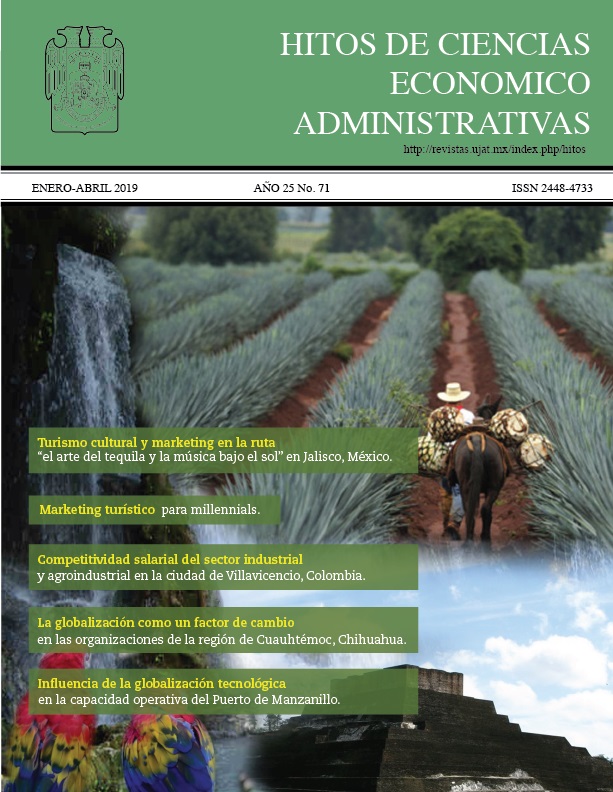Marketing turístico para millennials
DOI:
https://doi.org/10.19136/hitos.a25n71.3601Keywords:
Millennial. Preferencias. Destinos Turísticos Inteligentes.Abstract
OBJETIVO: Conocer los medios por los cuales los millennials acceden a la búsqueda de información, así como la preferencia en la elección de un destino turístico.
MATERIAL Y MÉTODO: Se realizó través del método inductivo con las técnicas cualitativas de revisión documental, tabla de contenido y grupo de enfoque con una selección intencional de 10 participantes entre los 20 y 35 años de edad, de diversas áreas del conocimiento y del sector productivo.
RESULTADOS: Este tipo de turista realiza su búsqueda y reservaciones haciendo uso del internet y redes sociales; gustan de destinos de playa nacionales e internacionales, cruceros y actividades donde haya una cercanía con la cultura o un gusto extrapolado hacia la modernidad, con una característica en particular: experiencias turísticas. Por ser una generación que pierde el interés rápidamente, sus destinos y preferencias cambian drásticamente, causando que las tendencias tengan una durabilidad menor que en años anteriores.
CONCLUSIONES: Se concluye que la oferta más apropiada para este segmento sea la propuesta de Destinos Turísticos Inteligentes (DTI), y que los proveedores de servicio lleven sus esfuerzos mercadológicos hacia esa tendencia.
Downloads
Downloads
Published
Issue
Section
License
Copyright (c) 2020 Universidad Juárez Autónoma de Tabasco

This work is licensed under a Creative Commons Attribution-NonCommercial-ShareAlike 4.0 International License.
As a requirement for the manuscript, the author is requested to provide the Copyright Assignment Letter, so that the Journal has the publication rights and to avoid plagiarism.
PLAGIARISM POLICIES
The Editorial Board of the Journal HITOS DE CIENCIAS ECONÓMICO ADMINISTRAIVAS has the authority to reject in the review process any manuscript that does not have adequate citation in the documents consulted in its scientific research work, which can be considered as plagiarism behaviors. Likewise, the referees carry out the plagiarism review using specialized software, such as iThenticate, among others.
COPYRIGHT POLICIES
Authors who have publications in the journal accept the following terms: • At the time the manuscript is accepted, the author transfers the copyright to the Journal HITOS DE CIENCIAS ECONÓMICO ADMINISTRATIVAS.
- The authors may make additional agreements for non-exclusive distribution of the published version of the article (e.g., including it in an institutional repository or publishing it in a book) provided that the initial publication in this journal is indicated.
- Authors are allowed and recommended to publish their research work on the Internet (eg, institutional or personal files), which would allow more beneficial exchanges to increase the citation of the published work.
This work is licensed under Creative Commons Attribution-NonCommercial-NoDerivatives 4.0 International





